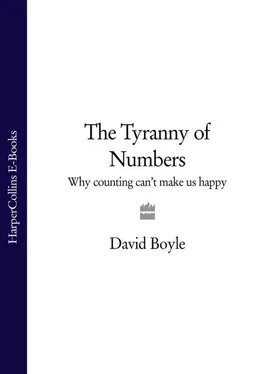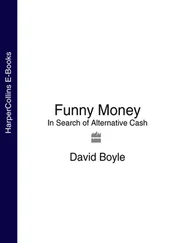1 ...7 8 9 11 12 13 ...17 It remains the phrase for which Bentham is best known. Priestley never used it again – he didn’t need it, said Bentham – so he adapted it as the centre of his philosophy. And there it is, in the first page of the first work he ever published, A Fragment on Government: ‘It is the greatest happiness of the greatest number that is the measure of right and wrong.’
Before Bentham (or so he believed) the laws of England and the morality on which they were based were a hopeless jumble of superstition, tradition, contradiction and privilege. After Bentham there would be a clear logical reason for laws, and governments would know automatically what to do. It would no longer be a matter of balancing distrust of the people with fear, as Gladstone said later, but a simple piece of arithmetic. Government action, all action in fact, should be based on what would make most people happiest.
For the rest of his life, Bentham devoted most of his intellectual effort to working out how his Greatest Happiness Principle might become clear in practice. Borrowing the popular thinking of the time which classified diseases or the Linnean classification of plants and animals into families, he set about classifying pleasures to meet the strict demands of his legislative theory. By the end of his life, Bentham had defined 14 broad kinds of pleasure and sent a generation of followers and enthusiasts away to measure them.
‘I wish I could return in six or seven centuries time,’ he was fond of remarking, ‘so that I can see the effects of my work.’ ‘Alas! His name will hardly live so long,’ wrote the essayist William Hazlitt, putting his finger on the whole problem with utilitarianism in one neat sentence: ‘There are some tastes that are sweet in the mouth and bitter in the belly, and there is a similar contradiction and anomaly in the mind and heart of man.’
But in spite of this put-down, Bentham has managed to remain famous for over a century and a half. For a long time, it didn’t seem as if he would even achieve this. He was much better known abroad. Hazlitt was also right when he said that Bentham’s fame was in inverse proportion to the distance from his house in Westminster. When the traveller and writer George Borrow found himself arrested in Spain, he was released from prison on the grounds that he shared a nationality with the man his captor called ‘The Grand Bentham’. And when Bentham visited Paris towards the end of his life (an honorary French citizen after the Revolution) the lawyers at the courts of justice rose to receive him.
‘The case is, though I have neither time nor room to give you particulars,’ he wrote in 1810, ‘that now at length, when I am just ready to drop into the grave, my fame has spread itself all over the civilized world.’
So what kind of man was the legislator for the world, the philosopher who thought you could calculate human happiness? Not a very worldly one. You know instinctively that anyone who calls his morning walks something as pompous as ‘antejentacular circumgyrations’ is likely to be pretty cut off from life. This after all was someone with sufficient mental space to have a pet name, not just to call his walking stick, but for his teapot (Dick) – and who probably never talked to women at all, except for his cook and housemaid. He was never once drunk, and fell in love briefly twice – but without obvious effect. He proposed to Caroline Fox in 1805. They never met again, but when he was 80, he wrote her a nostalgic letter saying that not a single day had gone by since then without his thinking of her.
He surrounded himself with luxuries of bread, fruit and tea, but he never read literature. He covered his walls with Hogarth prints, and happily wandered round and round his garden in Queen Square Place, Westminster, scrupulously dressed with his straw hat on his head.
He loved animals more than people. It somehow makes him a little more human and endearing to think of him encouraging mice to play in his office while he struggled to classify human experience (though it was difficult to manage their relationship with his beloved cats). But it hardly seems like the description of a man so fired with life that he could settle down and measure the unmeasurable passions. His putative ward and interpreter John Stuart Mill certainly thought so, and he knew him: ‘He had neither internal experience, nor external,’ Mill said of Bentham. ‘He never knew prosperity and adversity, passion nor satiety; he never had even the experiences which sickness gives … He knew no dejection, no heaviness of heart. He never felt life a sore and a weary burthen. He was a boy to the last.’
He pottered about his writing, enthusiastically starting gigantic projects of classification, the first chapter of which would turn out to be so voluminous that he would have to concentrate on that and abandon the rest. It was a pattern that continued for the rest of his life. He began by writing a long critique of the distinguished jurist William Blackstone, part of which came out in 1776, as A Fragment on Government. The rest was expanded and expanded and abandoned because it was out of control. Next there was the Treatise on Punishments. Only the introduction was ever near to being finished. The rest had once again expanded beyond control and had to be turned into a study on laws in general. And so on and so on, collating, noting in margins, packed with expletive and rage, then putting the papers aside never to be looked at again.
Luckily, according to the historian Leslie Stephen, he ‘formed disciples ardent enough to put together these scattered documents as the disciples of Mahomet put together the Koran’. Even so, it was hardly enough to make him a bestseller. One reviewer in his lifetime described his style as ‘the Sanskrit of modern legislation’ and those were the days when nobody could understand Sanskrit. ‘He has parenthesis within parenthesis, like a set of pillboxes,’ wrote his erstwhile secretary Walter Coulson. ‘And out of this habit have grown redundancies which become tiresome to the modern reader.’
Nor did the Fragment have the desired effect. He published it anonymously, and it was immediately pirated in Dublin, so that the first 500 copies were sold without any profit to him, but it did attract some interest as people in political circles wondered who the author was. Unfortunately for Bentham, he confided his authorship to his father to prove he was achieving something in his career. But his father was extremely indiscreet, and as soon as people knew the pamphlet had been written by a nobody, the sales collapsed.
It was the Panopticon that changed Bentham’s life. This was his invention of an efficient, modern prison, build in the shape of a flower, with the prison keeper at the centre able to watch over all the prisoners at once. The governor would run the new institutions as profit-making concerns, which would use the prisoners as motive power for a range of inventions that would make a profit and at the same time ‘grind the rogues honest’.
To Bentham the idea was a masterpiece of enlightenment. Because the new prison governors relied for their profit on the prisoners’ health, it was in their interest to keep them healthy and well-fed. It was never built, so we shall never know whether the prisoners would actually have thanked him – as Bentham believed they would. But since he was intending to work them 14 hours a day with another hour on the treadmill for exercise, it’s hard to believe their gratitude would have been overwhelming.
For the next 20 years, Bentham barraged the government with his plans, and with some effect. They even bought a site for it on Millbank, where the Tate Gallery stands today, but the final signature was frustratingly difficult to obtain. Bentham was so certain the money would come through that he sank at least £10,000 into the project as early as 1796, and he soon found himself on the verge of imprisonment for debt. Day after day he wandered the Treasury corridors, writing letters, his hopes rising when William Pitt was replaced as Prime Minister by Henry Addington, only to be dashed again. ‘Mr Addington’s hope is what Mr Pitt’s hope was,’ he wrote in despair, ‘to see me die broken-hearted, like a rat in a hole.’
Читать дальше












